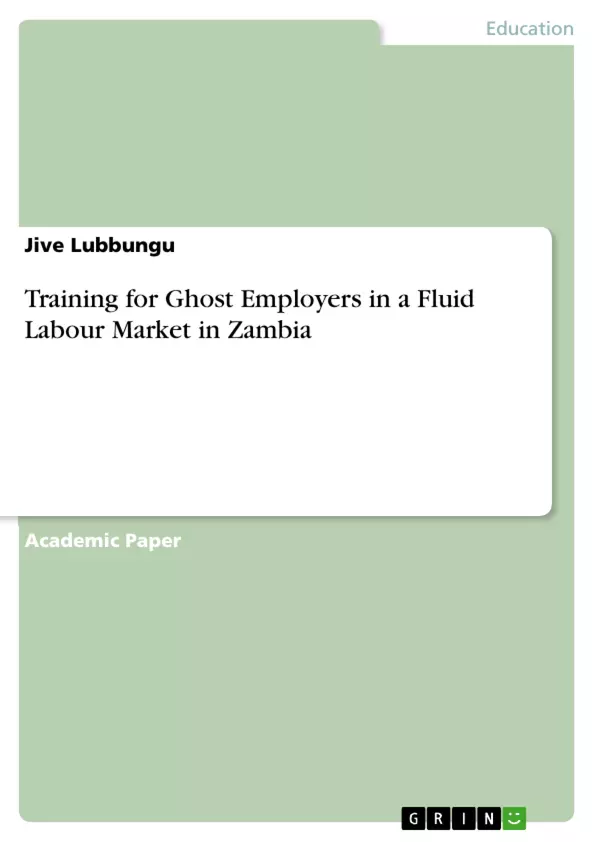This study argues that training institutions in Zambia are merely churning out graduates to Ghosts as they do not know which Labour market is going to employ their products. Drawing from the above argument, the study set out to find out whether university graduates access the Labour market in their area of specialization. Being qualitative research, data collection was done through face-to-face in-depth interviews while documents such as newspapers were used as a secondary source of data. A total of 25 graduates from 3 public universities were interviewed through face to face interaction.
Some scholars have described education as the live wire of its industries and also as the foundation of moral regeneration and the revival of its people. It is also said to be the force and bulwark of any nation's defence and according to Orji and Maekae, no nation rises above the level of its education.
Inhaltsverzeichnis (Table of Contents)
- Introduction
- Literature Review
- Methodology
- Sample Characteristics
- Sampling Technique
- Data Collection Method
- Data Analysis
- Findings and Discussion
- The Status Quo
- Job Misplacement
- Skills Mismatch
- Recommendations
- Conclusion
- References
Zielsetzung und Themenschwerpunkte (Objectives and Key Themes)
This study investigates the challenges faced by university graduates in finding employment in Zambia. It aims to determine if graduates are able to access the labor market in their area of specialization, and to explore the reasons behind any mismatches between skills and available jobs. The study argues that training institutions in Zambia are essentially training for "ghost employers" due to a fluid and unpredictable job market that cannot guarantee employment for graduates.
- The role of education in national development.
- The mismatch between university graduates' skills and the needs of the labor market in Zambia.
- The impact of a fluid labor market on graduate employment prospects.
- The challenges faced by training institutions in preparing graduates for the job market.
- The implications of unemployment for graduates and their future career paths.
Zusammenfassung der Kapitel (Chapter Summaries)
The introduction of this study highlights the importance of education for national development and outlines the challenges faced by Zambia's higher education system in aligning its curriculum with industry needs. It argues that training institutions are failing to provide graduates with the skills necessary to find suitable employment.
The literature review examines previous studies on the role of education in national development, particularly in Nigeria and Catalonia. It highlights the importance of matching skills with job demands and explores the potential consequences of a mismatch, such as long-term unemployment and underemployment.
The methodology section details the qualitative research approach employed in the study, including the sampling technique, data collection method, and data analysis. The study utilized face-to-face interviews with graduates from three public universities in Zambia.
The findings and discussion chapter presents the results of the study, highlighting the high rate of job misplacement among graduates. The study found that many graduates are forced to accept jobs outside their area of specialization, often with lower wages than expected. The chapter also explores the issue of skills mismatch, where employers perceive graduates as lacking the necessary skills for available positions.
This preview does not include content from the conclusion or final chapter in order to avoid revealing major conclusions or spoilers.
Schlüsselwörter (Keywords)
This study focuses on the challenges faced by university graduates in Zambia, exploring the relationship between education, labor market fluidity, and employment outcomes. Key terms include education, training, job market, national development, graduates, skills mismatch, unemployment, and ghost employers.
- Arbeit zitieren
- Jive Lubbungu (Autor:in), 2021, Training for Ghost Employers in a Fluid Labour Market in Zambia, München, GRIN Verlag, https://www.grin.com/document/1038913



